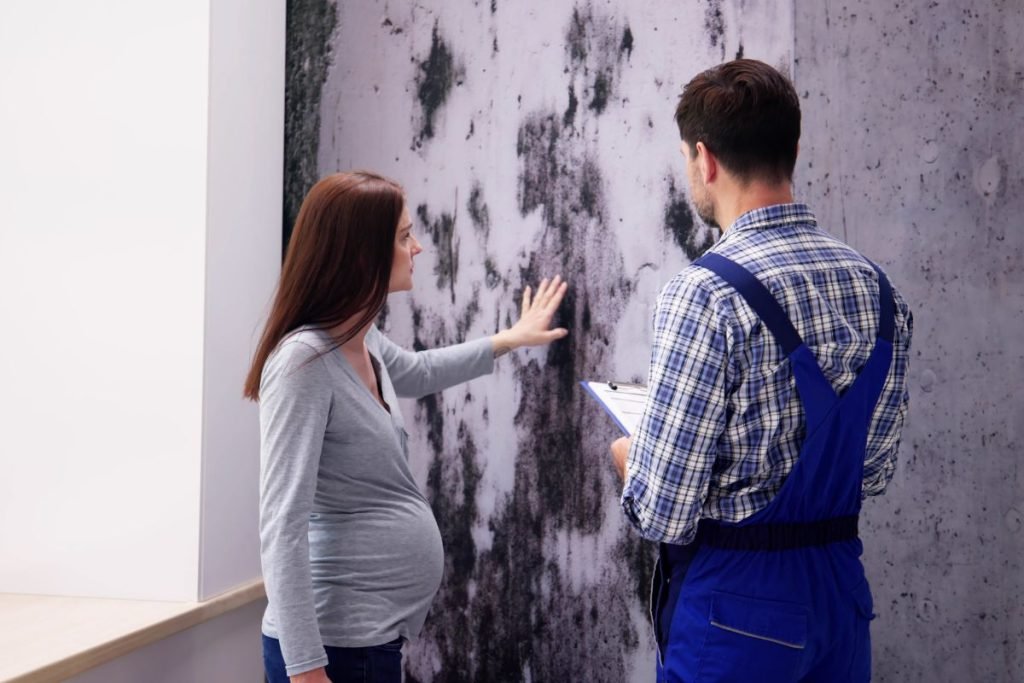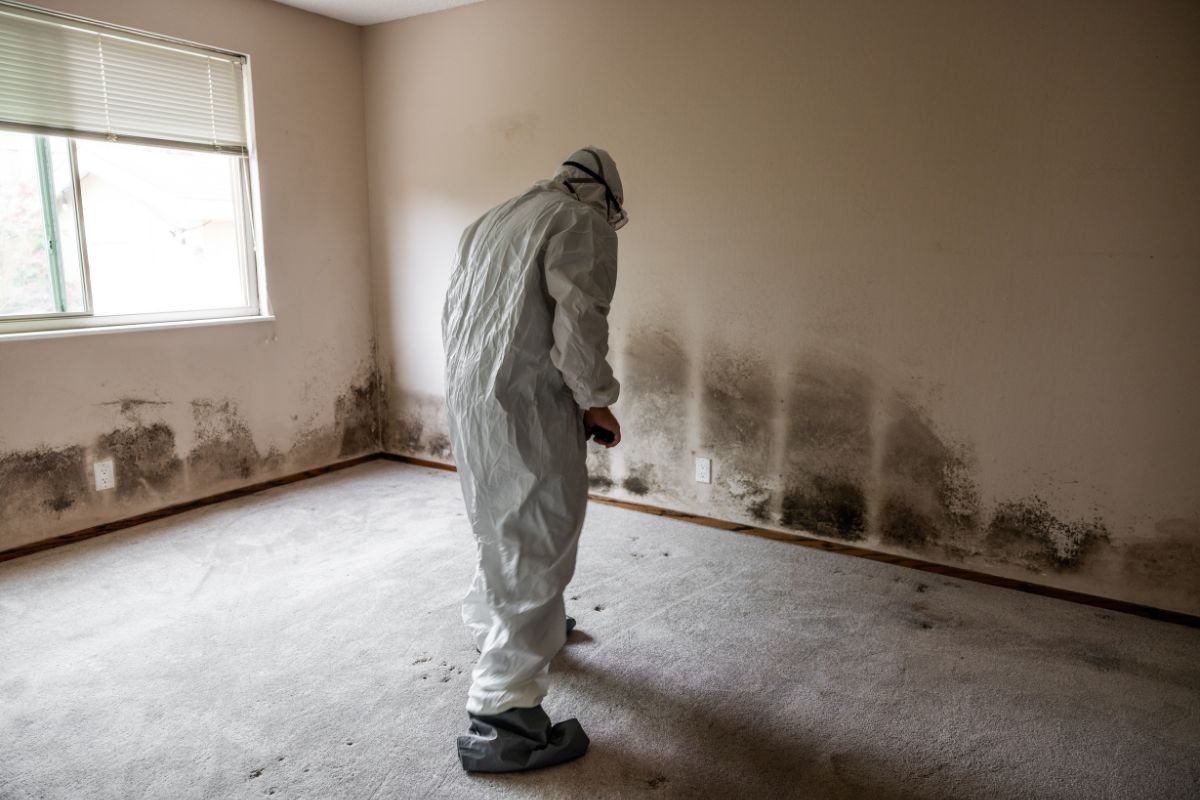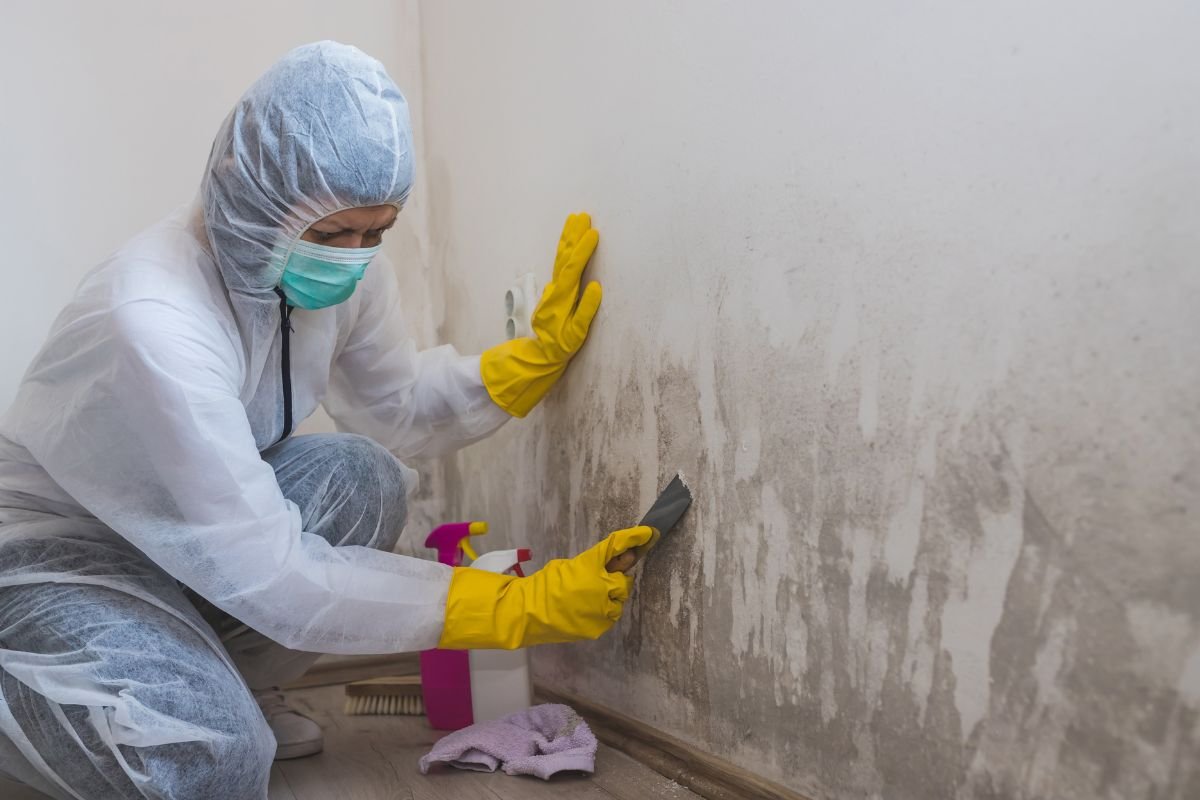
If you suspect mold in your Houston home, a professional mold inspection is crucial. It’s not just a quick look around; it’s a comprehensive assessment that includes a visual examination, moisture detection, air and surface sampling, and a detailed report with recommendations. This guide breaks down exactly what you can expect from a thorough mold inspection.
Understanding the Importance of Mold Inspection in Houston

Houston’s humid climate provides the perfect breeding ground for mold. Mold isn’t just unsightly; it can trigger allergies, asthma, and other respiratory problems. Identifying and addressing mold early can prevent extensive damage to your home and protect your family’s health. A professional mold inspection provides the information you need to make informed decisions about mold remediation.
Preparing Your Home for a Mold Inspection
Before the inspector arrives, there are a few steps you can take to ensure a smooth and effective inspection:
- Clear Clutter: Remove any items blocking access to walls, floors, and ceilings, especially in areas prone to moisture like bathrooms, kitchens, and basements.
- Provide Access: Ensure the inspector can easily access all areas of your home, including attics, crawl spaces, and utility closets.
- Gather Information: Be prepared to share any information about past leaks, water damage, or known mold issues.
This preparation will help the inspector conduct a more thorough and accurate assessment.
Suspect mold in your home? Don’t wait! Call us today for a professional mold inspection in Houston!
The Core of the Inspection: A Detailed Visual Assessment
A visual inspection is the foundation of any good mold assessment. The inspector will meticulously examine all accessible areas of your home for signs of mold growth and water damage.
- Areas Inspected: This includes walls, ceilings, floors, basements, attics, crawl spaces, bathrooms, kitchens, and any other areas prone to moisture.
- Identifying Visible Mold: The inspector will look for visual signs of mold, such as discoloration, staining, or a musty odor. They’ll also assess potential sources of moisture, like leaks or condensation.
Beyond the Surface: Moisture Detection Techniques
Visible mold is only part of the story. Hidden moisture can fuel mold growth behind walls and under floors. Inspectors use specialized tools to detect moisture that isn’t visible to the naked eye.
- Moisture Meters: These devices measure the moisture content of building materials, indicating areas where moisture levels are elevated.
- Infrared Cameras: These cameras detect temperature differences, which can reveal hidden moisture sources and potential leaks.
These techniques help identify the root cause of mold growth, ensuring effective remediation.
Don’t let hidden mold damage your home and health. Call us for advanced moisture detection services!
Mold Testing: Air and Surface Samples Explained
When visual inspection or moisture detection indicates potential mold issues, air and surface samples are collected to confirm the presence and type of mold.
- Air Sampling: Air samples are collected to measure the concentration of mold spores in the air. This helps determine the overall air quality and identify elevated mold levels.
- Surface Sampling: Surface samples are collected from suspected mold growth to identify the specific mold species present.
- Understanding Lab Results: Lab results will provide information on the types of mold identified, their concentration, and whether they pose a health risk.
After the Inspection: Understanding Your Mold Inspection Report

After the inspection, you’ll receive a detailed report outlining the inspector’s findings, including:
- Report Contents: The report will summarize the visual inspection findings, moisture detection results, and lab analysis results.
- Recommendations: Based on the findings, the report will recommend appropriate remediation measures, such as mold removal, moisture control, and repairs.
The report provides a clear roadmap for addressing any mold issues in your home.
Selecting the Right Mold Remediation Company in Houston
If your mold inspection reveals the need for remediation, choosing a qualified and reputable company is essential.
- Certifications and Licensing: Ensure the company is certified and licensed to perform mold remediation in Houston.
- Experience and Reputation: Look for a company with a proven track record of successful mold remediation projects.
- Insurance and Guarantees: Verify that the company carries adequate insurance and offers guarantees on their work.
A reputable company will provide a clear and transparent remediation plan, ensuring the mold is effectively removed and the underlying moisture issues are addressed.
Understanding what causes dry rot is essential for homeowners, as it often goes hand in hand with moisture-related issues like mold. If you’re concerned about potential mold problems, learning what a mold inspection includes can help you take the right steps to protect your home.
Protecting Your Home and Health: The Value of Mold Inspection
Regular mold inspections are a proactive way to protect your home and health. By identifying and addressing mold early, you can prevent costly damage, improve indoor air quality, and create a healthier living environment for your family.
Frequently Asked Questions About Mold Inspections
How much does a mold inspection cost in Houston?
The cost of a mold inspection can vary depending on the size of your home and the scope of the inspection. Contact us for a free estimate.
How long does a mold inspection take?
A typical mold inspection takes between 2 and 4 hours, depending on the size and complexity of your home.
Can I do a mold inspection myself?
While DIY mold test kits are available, they are often inaccurate and may not provide a comprehensive assessment. A professional mold inspection is recommended for accurate results and expert recommendations.
What are the signs of mold in my home?
Signs of mold include visible mold growth, a musty odor, water stains, and unexplained allergy symptoms.
Will a home inspection check for mold?
A standard home inspection typically includes a visual assessment for mold, but it may not be as thorough as a dedicated mold inspection. If you suspect mold, it’s best to schedule a separate mold inspection.
Don’t wait until mold becomes a major problem. Contact us today for a professional mold inspection in Houston and protect your home and health.

